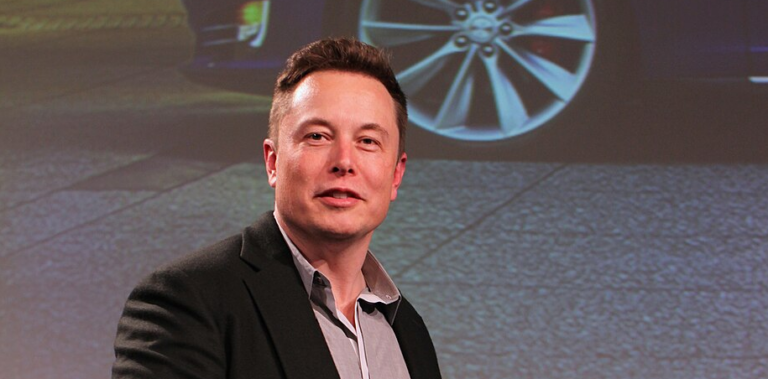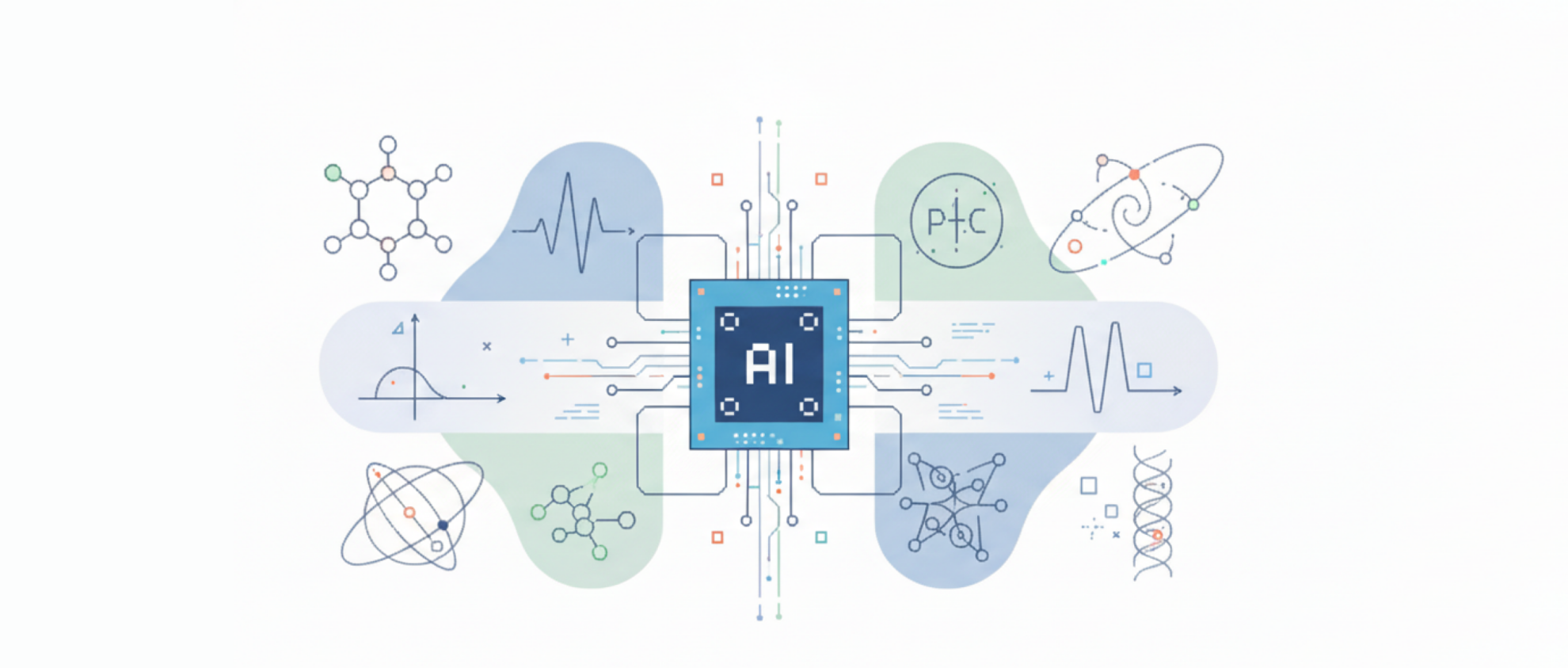Command Palette
Search for a command to run...
The Father of Synthetic Biology, a Former OpenAI Executive, and a Partner at Flagship Have Joined Forces to Value Lila Sciences at $1.3 Billion, Aiming to Advance "scientific superintelligence."
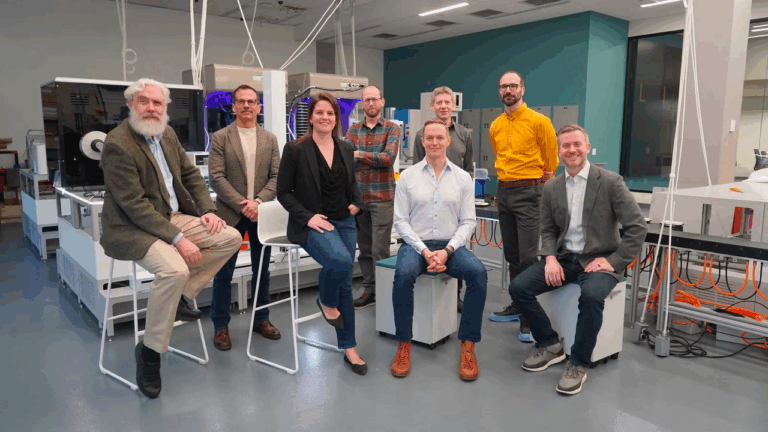
Lila Sciences, a startup based in Cambridge, Massachusetts, recently announced the completion of a $350 million Series A funding round, bringing its total funding to $550 million and elevating its valuation to over $1.3 billion, officially making it a unicorn.The investor lineup is also quite impressive – well-known institutions such as Nvidia, Flagship Pioneering, ARK Venture Fund, and Abu Dhabi Investment Authority (ADIA) have all invested.
Amidst the clamor of a race to develop large-scale models, this funding round has attracted considerable attention. To outsiders, this is not merely a capital event, but also a bellwether for the changing direction of artificial intelligence: in predictions of the next frontier in AI, "revolutionary scientific discovery" is gradually taking center stage.
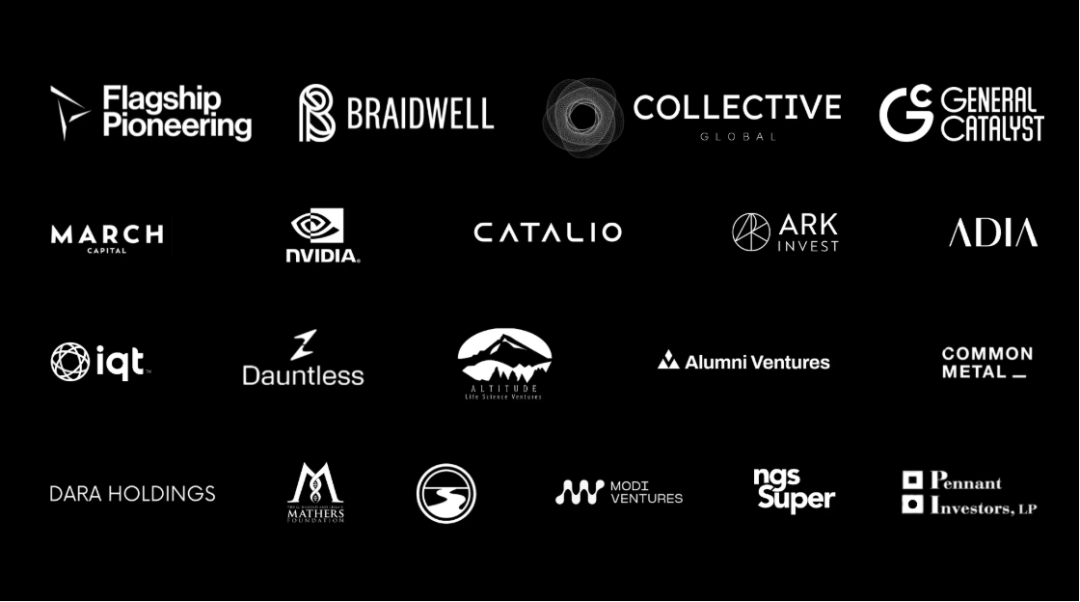
Company website: https://www.lila.ai/
A "Beautiful Mind" spanning science, materials science, chemistry, and life sciences.
Lila Sciences was founded on a bold insight: that building a unified platform integrating artificial intelligence, software, and robotics could potentially drive scientific advancements across multiple fields autonomously. Therefore, they are not content with merely developing a single type of drug or material.Instead, it aims to create a unified intelligent agent, a true "Scientific Superintelligence".
Internally, this concept is expressed as "reinventing the wheel of scientific methodology." Lila observed that development, from physics to life sciences and even broader fields, follows the principle of scalability, a principle that aligns perfectly with the evolutionary path of artificial intelligence. Faced with the choice between incremental improvement and fundamental change, they firmly chose the latter.
In Lila's vision, future scientific research will no longer be limited by traditional human dependence, experience barriers, and manual experiments. Instead, AI agents execute the entire scientific process.To this end, Lila is building an end-to-end integrated platform that deeply integrates professional AI models with automated laboratories to create a true "AI science factory".
In an interview, co-founder and CEO Dr. Geoffrey von Maltzahn described Lila as follows: "Artificial intelligence will drive the next revolution in scientific methodology, the most valuable thing in human history." He summarized Lila's mission as building a "beautiful mind" that spans scientific fields such as materials, chemistry, and life sciences, and further pointed out: "Instead of fragmenting science into countless subfields, we can build a unified intelligent agent that can transcend numerous scientific fields, integrating knowledge about how the world works."
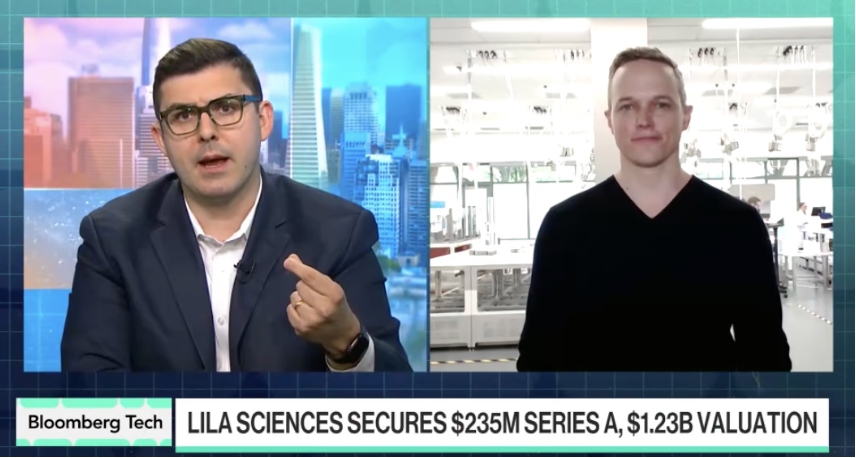
"AI Science Factory"—An automated laboratory run by AI
A grand vision needs solid results as its foundation. In a report, The New York Times described Lila as an ambitious startup that embodies a new optimism about how artificial intelligence can accelerate scientific discovery.
According to founder Geoffrey von Maltzahn, the team has completed five projects to demonstrate its artificial intelligence capabilities. These AI systems collaborate with researchers, with scientists setting task objectives and the AI continuously optimizing experimental designs and iterating results, thereby accelerating the research process.
For example, one breakthrough was that Lila's platform discovered a novel non-platinum group metal catalyst for green hydrogen production in just four months. The artificial intelligence was constrained to ensure the catalyst was either abundant or easily produced to avoid reliance on rare metals such as iridium. Thanks to the AI's extrapolation and accelerated experimentation, the research team was able to generate new catalyst compositions on average every two weeks, a process that could take up to a decade using traditional methods.

From Flagship to Lila: An Extension of the Concept
Lila Sciences' growth path differs from that of traditional AI startups.
It was not born in a laboratory of a well-known university, nor was it a startup by a team that left a tech giant. Instead, it was born in the internal incubation system of the biotech venture capital firm Flagship Pioneering.
Many people's first impression of Flagship comes from its successful incubation of Moderna, the American vaccine giant known worldwide for its mRNA vaccines.Today, it is expanding its focus from traditional life sciences to "multi-agent systems" driven by artificial intelligence and possessing the potential for emergent intelligence.
In 2023, two research projects within Flagship—one focusing on new materials research and the other on biological applications—gradually discovered that the talent recruited by the two teams and the problems they were trying to solve coincided. Therefore, they decided to join forces, giving birth to Lila Sciences as it is today.
As Flagship founder Noubar Afeyan commented, Lila is an ambitious project, "We believe it will accelerate scientific progress and bring tremendous benefits to society."
For Flagship, Lila is more than just a new investment; it's a continuation of its long-term strategy, extending the logic of scientific innovation to the level of intelligent systems. Leading this exploration is Geoffrey von Maltzahn, Flagship's general partner and a serial entrepreneur. He personally serves as CEO of Lila Sciences, bringing this concept from the incubation program into a real corporate structure.
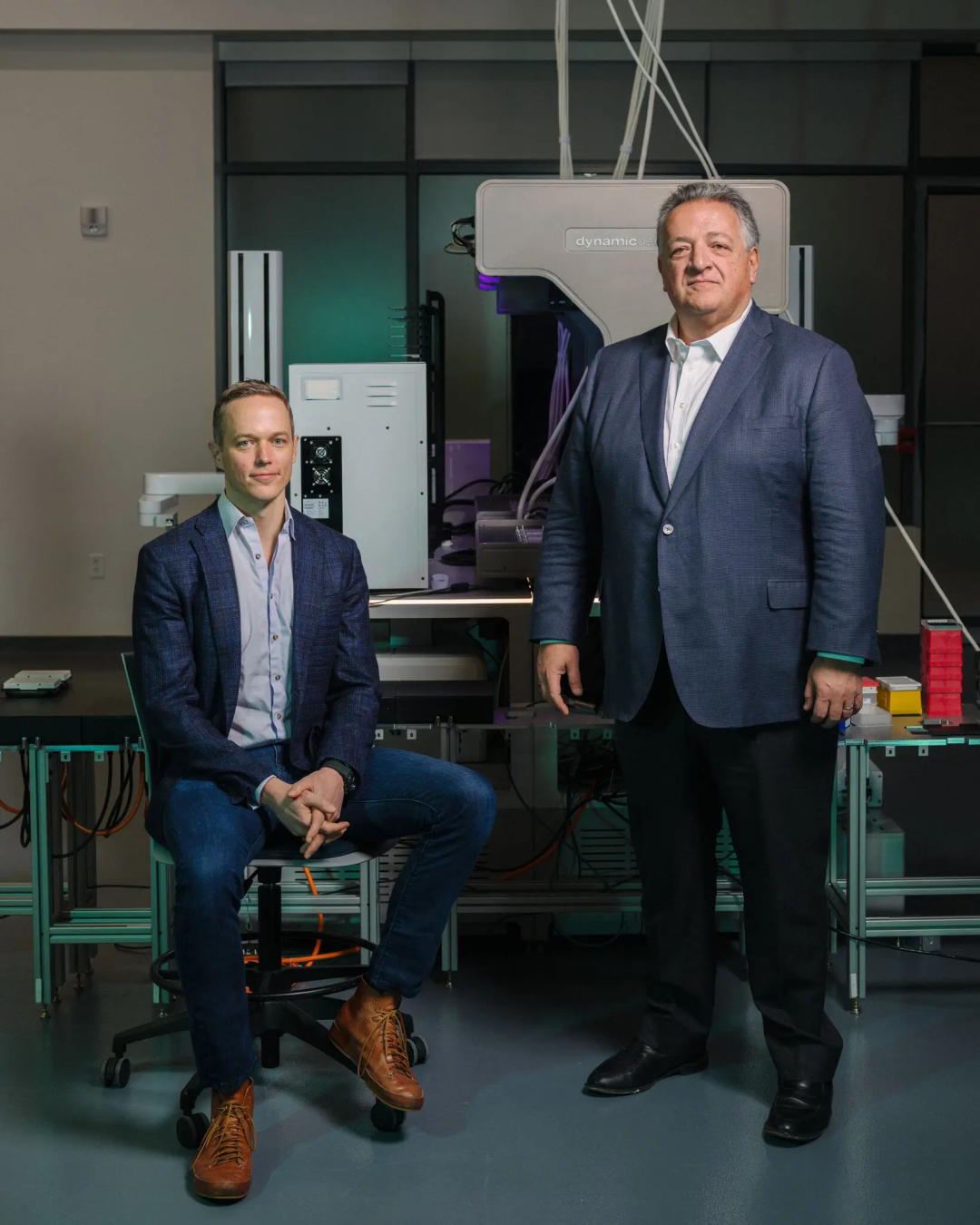
A cross-disciplinary legion born for "scientific superintelligence"
In such a cross-disciplinary project that challenges traditional scientific methods, the core strength of the team is crucial.
Lila's officially announced executive roster includes renowned geneticist, Harvard University professor, and father of synthetic biology, Dr. George Church, as its chief scientist. Meanwhile, the addition of former OpenAI executive Kenneth Stanley as senior vice president adds further intrigue to the team.
In a recent interview, Kenneth Stanley mentioned that Lila's innovative atmosphere reminded him of the early days of OpenAI, "Everyone was excited about what was going to happen next, and there was a feeling that the next big thing was going to happen here."
According to public information, Lila's team has grown from about 25 people to more than 150 people in the past 12 months, and plans to double that number again by the end of 2025. This cross-disciplinary "scientific special forces" is rapidly taking shape.
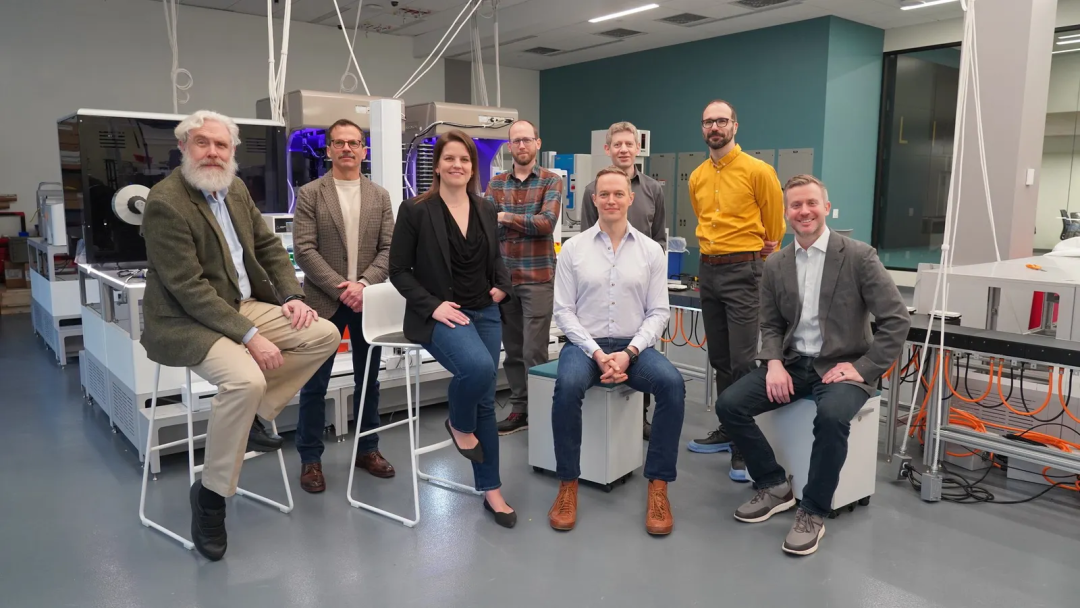
Their job posting states: "We believe that the most exciting frontier in the field of artificial intelligence is science, and we are committed to becoming a leader in the field of scientific superintelligence." Regarding team culture, Lila defines it as: "We are a team with deep expertise in science, artificial intelligence, and robotics, dedicated to solving the greatest challenges facing humanity."
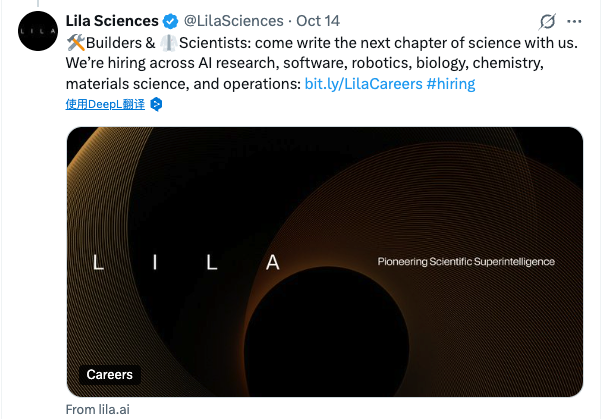
From self-developed platform to open ecosystem
Lila's vision extends beyond disruptive in-house R&D driven by a professional team. To support its "AI Science Factory" concept, the company recently signed a 235,500-square-foot laboratory space lease in Cambridge, Massachusetts, one of the largest lab leases in the Greater Boston area this year. These factories are equipped with AI-controlled robotic instruments to ensure the continuous operation of experiments.
A more ambitious plan lies in a platform strategy.Lila stated that it plans to open its platform to commercial customers in the future, providing partners with access to its AI models and automated labs.Although the specific names of the partners have not yet been disclosed, the company says the platform has attracted the attention of companies in the energy, semiconductor, and drug development sectors.
Imagine Lila's "AI science factory" operating day and night in a newly leased, over 200,000-square-foot laboratory in Cambridge. Here, the "wheel of scientific method" described by Dr. Geoffrey von Maltzahn is being driven for the first time by a non-human intelligent agent.
Flagship Pioneering founder Noubar Afeyan believes it can "accelerate science and benefit society"; Kenneth Stanley, who switched from OpenAI, felt "the same excitement he had in the early days of OpenAI"; and the addition of George Church, the "father of synthetic biology," added more scientific authority to this bold endeavor.
The capital market has expressed its expectations with real money, and now, this "Beautiful Mind," comprised of an interdisciplinary special forces team, AI agents, and automation laboratories, has been launched. Its story is shifting from news reports and financing announcements to a practice about science itself.
References:
1.https://www.reuters.com/business/ai-lab-lila-sciences-tops-13-billion-valuation-with-new-nvidia-backing-2025-10-14/
2.https://www.huxiu.com/article/4800109.html
3.https://www.prnewswire.com/news-releases/flagship-pioneering-unveils-lila-sciences-to-build-superintelligence-in-science-302397198.html
4.https://livearticles.net/new-york-times/2574654.html
5.https://www.bloomberg.com/news/videos/2025-09-15/lila-wants-to-create-scientific-superintelligence-video

